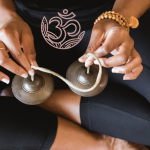What Are Habits?
Habits are behaviors we perform daily and with little thought process to do so. It’s almost as if some of our daily habits are done automatically. We often classify habits as either being good or bad. There are also everyday habits that allow us to carry out essential activities, most of us have, that are simply our routines.
Everyone has habits. From what time we go to sleep or wake up in the morning, to what time we eat our meals or even tie our shoes – these are all actions we perform daily without even thinking about them. Good habits are categorized as behaviors that benefit our lives. Eating right, getting enough sleep, being financially responsible, and staying active daily are some habits that are generally considered good. Conversely, bad habits are behaviors that don’t enrich our lives or no longer work for us. Some examples of bad habits are, fingernail biting, the overindulgence of food or alcohol, and drug use. These are learned behaviors that don’t benefit our lives. Then, there are daily routines that become habits too. Like the coffee, you always buy from the same coffee shop on the way to work, or what time your body wakes up naturally every day or even the way you put your clothes on in the morning.
There are several reasons why we use habits and why they are important. We use habits to make our lives easier. For instance, think about the simple task of brushing your teeth. You don’t have to concentrate on how to brush your teeth every day; you just do it out of habit.
When we do things out of habit, our brains are allowed a break. Performing these tasks allows the brain to allocate more energy to focus on complex tasks and decisions. So, habits are actually important for brain function.
Habits are hard to break, whether they’re daily tasks or good or bad. Similarly, new habits are hard to form. Doing so requires a conscious effort. Lots of times, people end up going back to their old habits, even after trying hard to form new ones. This is why losing weight or breaking addiction is so hard. Changing your habits, changes the way your brain works, it’s no simple task.
Habits can be anything we do daily, from the mundane tasks to the decisions we make every day that affect your life. Habits can be considered good or bad, but we know that they are an important part of how our brains work. We can choose our habits in order to live a healthier lifestyle.
Habits Aren’t Inherently Good Or Bad
Habits are behaviors that are done every day that require little thinking or concentration. Habits include all sorts of activities. They can range from getting dressed or sleeping habits to what we eat and to smoking or substance addiction. Most people would classify their habits into two categories, good and bad. But, our habits aren’t necessarily inherently good or bad. What actually categorizes good and bad habits has more to do with how these behaviors affect our lives and our goals we’ve set for ourselves. Most behaviors can be considered good or bad, depending on two factors. These factors are frequency of the behavior and how the behavior affects us.
Frequency of the behavior refers to how often that habit is carried out. So, take exercise, for example. Being in the habit of exercising daily is considered a good habit because of its many health benefits, like sleeping better, increased positive mood and maintaining a healthy weight. But, even exercise can become a bad habit if the frequency of the task is overdone. In some cases people exercise too much, several times a day, putting strain on the bodies or becoming overly focused on how their body looks.
The other factor in classifying what is considered a good or bad habit is how the habit affects us and the goals we’ve set for ourselves. Good habits enrich our lives and further us to our goals. Smoking cigarettes is considered a bad habit because smoking doesn’t enrich life; rather it negatively affects our health. The way we spend the money we make is another example. Spending money is necessary to live in our society. Many people have a goal of buying a home, so a common goal is to save money for a down payment. When the habit of spending starts to negatively affect our goals, it becomes classified as a bad habit.
Most people go through life with both good and bad habits. Those habits may change, depending on where you’re at in your life. Although habits are hard to change, it can be done. The point should be to have the good habits outweigh the bad. By making conscious decisions which habits you would like to live with, you will ultimately enrich your life. Set goals for yourself. You can achieve your goals by putting your good habits to use.
Figuring Out What Habits Are Working For You And Which Ones Aren’t 
The definition of a habit is a behavior that is repeated daily and that is done with little to no thinking involved. We all have habits. Classification of our habits range from good, healthy habits to bad habits that can be dangerous and hinder our lives. Most people would agree that good habits are the ones we strive for. But, how can we identify which habits we have and if they are working to further us or working against us? And how can we turn our not-so-good habits into great ones that will help us attain our goals?
One way to identify which habits you have is to audit your behaviors. If you take a few minutes per day for a week to jot down your activities, then you will be able to distinguish which habits you have. Once you understand the behaviors that you tend to repeat every day, you will be able to judge which habits are desirable for you and which may not be.
Desirable habits are those that positively impact your life and help you reach your personal goals. This may take some time and self-reflection. Think about what you want to achieve. An easy way to help organize your thoughts is to make a list of goals or what you want to change about yourself. Once you’ve done so, you can classify your habits into ones that will help you get to your goal or hinder you from doing so. For instance, many people would like to improve their overall health by losing a few pounds. If that is the goal you aim for, after auditing your habits, take a good look at how you can make some changes to your everyday life to help you get there. Maybe you notice that every day at 4:00 you get hungry and end up stopping on the way home from work at a drive-thru for fries and a drink. You can change that habit by planning ahead and packing a granola bar or some fruit to eat on the way home to tide you over instead. Or you may decide that if you wake up an hour earlier, you can go on a walk before work to burn some calories.
Figuring out which habits work positively for you and which ones don’t is the first step in bettering your life. A few changes to your usual routine can make a difference and get you closer to your goals.





Leave a Reply